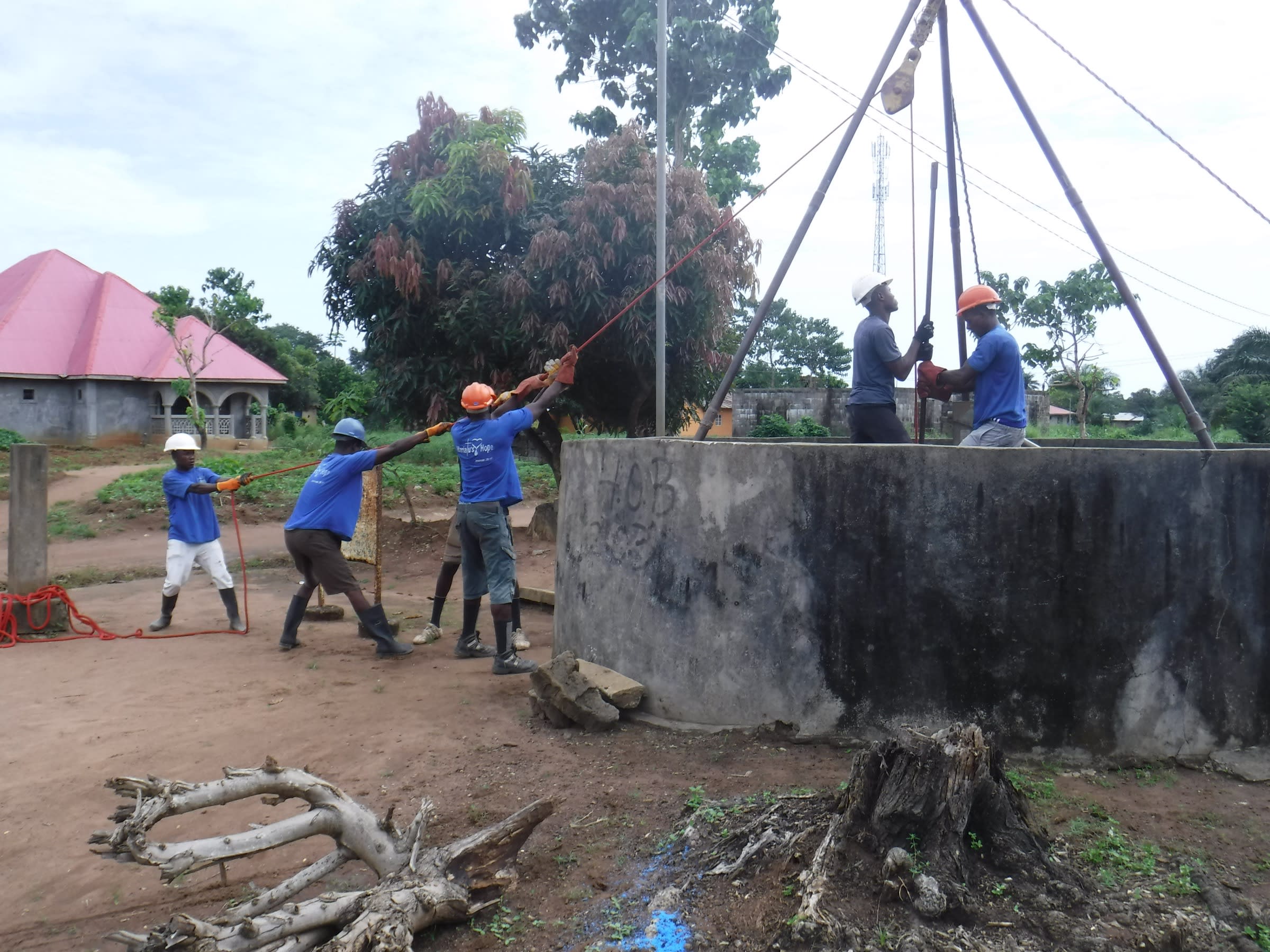New London is full of newcomers to the Chiefdom. They come from all over the country looking for a better life for their children. People from all tribal groups living side by side make up the community. The houses line the main road in this community. Some are made out of mud blocks plastered with cement, while others are made out of cement blocks.
The community of 154 people living near the well at St. Dominic's Catholic Church looks abandoned during the day because the children are at school while the parents are either working at the airport or attending one of the many community churches.
The community well at Saint Dominic's Catholic Church is unable to provide reliable water throughout the year. The well is never completely dry, but the water table drops from June to July, causing more frequent pump repairs and extremely slow water discharge from the pump.
One of the negative consequences of using this water point is the delay in accessing sufficient water at any given time. The children queue very early in the morning before heading to school and in the evening when they come home. The amount of time spent per day fetching water is more than the time spent on their studies.
"As a teacher at the local secondary school, I get a lot of excuses from latecomers, but at the top of the list is: 'I was late because I had to fetch water,'" said Patrick Mansaray.
He explained the students who are late miss crucial learning time and disrupt their classmates by arriving in the middle of lessons. Mr. Mansaray counts himself lucky because he lives so close to the church well, so his children are not late each day. But most community members are not that fortunate.
"It seems to me that I spend so much time fetching water that by the time I get to school, I am tired and unable to focus on my studies," said Joshua, a teenage student.
"I often beg my neighbor to help me in the morning, so I am not late. When I get home from school, I help them fetch their water for their home."
The well is at the center of the community and far away from any source of water contaminants. Over the years, the well pad and fence have stood the test of time - a sign that community members are doing their best to maintain the well.
Here’s what we’re going to do about it:
Well Rehabilitation
The well marked for this overhaul is dry for a few months every year and needs major work to supply adequate, clean water to the community year-round. The pump will be removed, and a hand auger will be lowered inside and powered by a drill team. This hand auger will allow the team to drill several meters deeper to hit a sufficient water column to ensure the well supplies water throughout all seasons.
As the team drills, casing will be installed, transforming the bottom of this hand-dug well into a borehole. PVC piping will connect this lower system directly to the pump, a construction that we know will also improve the quality of water.
Once this plan is implemented, everyone within the community will have access to safe drinking water in quality and quantity, even through the dry months.
Hygiene and Sanitation Training
There will be hygiene and sanitation training sessions offered for 3 days in a row.
After our visit, the hygiene and sanitation trainer decided it would be best to teach community members how to build a tippy tap (a handwashing station built with a jerrycan, string, and sticks). They will use these tippy taps for handwashing demonstrations and will also teach about other tools like dish racks and the importance of properly penning in animals.
This training will also strengthen the water user committee that manages and maintains this well. They enforce proper behavior and report to us whenever they need our help solving a serious problem, like a pump breakdown.

 Borehole Well and Hand Pump
Borehole Well and Hand Pump



































